Florida State's decline since the 2013 national championship season, or even since a 10-2 season in 2016, can't be blamed on one position group. But the problems with the Seminoles' offensive line have been there for all to see.
Last fall, FSU led the Power 5 in percentage of plays for zero or negative yards (41). Among Power 5 teams, only Oregon State and Louisville gave up more sacks per game than the Seminoles (3). Since 2015, Florida State ranks 17th nationally (fourth in the Power 5) in percentage of plays for zero or negative yards (35.9).
In 2017, ESPN analyst Jesse Palmer called Florida State's offensive line "arguably the worst position group in Power 5 football." Anyone who watched FSU in 2018 might have removed the "arguably" part. The end to the tenure of veteran line coach Rick Trickett wasn't good, and although Greg Frey arrived last year with great credentials, the former FSU tackle couldn't get his alma mater on track.
Randy Clements will take his shot this season. new FSU offensive coordinator Kendal Briles is receiving more attention, but Clements might end up being the more impactful addition to Willie Taggart's staff. Few position groups among high-profile programs need a jolt more than the FSU offensive line, and it's up to Clements to provide one.
Starting with Clements, I picked one new assistant for each position group who should make a significant impact in the 2019 season. While all these coaches are accomplished, this isn't necessary a best coaches' list, but one that accounts both for coaching aptitude and the needs of each position.
Let's get started.
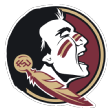 Offensive line: Randy Clements, Florida State
Offensive line: Randy Clements, Florida State
Previous job: Offensive line coach/run game coordinator, Houston
Most first-year coaches tell their new players about clean slates. For Clements, rehashing the recent past with FSU's offensive linemen serves no purpose, especially since the Seminoles operated in different offensive schemes.
"I know they've been beat up here a little bit, but we're not worried about that," he told ESPN on Sunday. "I came in new. I don't want to base my opinion off of ... anybody else. I want to see for myself. I've been really pleased with the guys. Their eagerness to work and get better has been really, really high."
An advantage for Clements and, in turn, the FSU offensive line, is Clements' alignment with Briles and the scheme. Clements has worked on staff with Briles in all but one season (2017) since Briles began his coaching career at Baylor in 2008. Clements' connection to the offense goes back even further, as he worked under Briles' father, Art, at Stephenville (Texas) High School in the 1990s before joining Art Briles' staffs at Houston and then Baylor.
Kendal Briles and Clements became a package deal in the coaching market last winter. Tennessee interviewed Briles for its coordinator vacancy but didn't reach an agreement in part because Vols coach Jeremy Pruitt wanted to keep Will Friend as line coach. FSU, meanwhile, was able to add both Briles and Clements.
"It was important to get someone that understood the playcaller, and those two guys mesh and understood exactly what we want to accomplish," Taggart said. "Because it's not going to work regardless if you're not on the same page. That was the easy point."
The Briles/Baylor offense is best known for pace and extra-wide wide receiver splits, but the run game is rooted in power, and the line responsibilities aren't overly complex. In 2018, Houston ranked 11th nationally in yards per play (6.6) and sixth in percentage of plays for 10 yards or longer (25). The streamlined approach could ease some pressure off FSU's front five.
Clements noted that the offense's tempo also creates advantages by forcing defenses to simplify their schemes.
"Anybody can go fast. You have to play well and go fast," Clements said. "That's our goal. That wouldn't be any different if it was my 10th year or my first year. I want it to be like the guys I've had in the past, where we can run the ball at you with pace and throw it over the top."
Clements is pleased with the leadership shown by centers Baveon Johnson and Andrew Boselli. Tackle Ryan Roberts, a graduate transfer from Northern Illinois, has been a solid addition. Like most offensive line coaches, Clements would like to rely on a full two-deep, which he feels FSU is close to achieving.
FSU's line can't get much worse than last year, but how much progress can it make in Year 1 under Clements? The opener against Boise State in Jacksonville (7 p.m. ET, Aug. 31 on ESPN) provides a good gauge, as the Broncos boast one of the most talented defenses in the Group of 5 and an elite pass-rusher in Curtis Weaver.
"Everyone wants a chance to go out and prove themselves," Clements said. "This group is very eager to go out and prove they're one of the best offensive lines in the country."
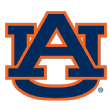 Quarterbacks: Kenny Dillingham, Auburn
Quarterbacks: Kenny Dillingham, Auburn
Previous job: Offensive coordinator/quarterbacks coach, Memphis
Auburn head coach Gus Malzahn is officially reclaiming the offensive playcalling duties this year (many would argue he never relinquished them). But the unit's performance in 2019 probably hinges on a quarterback recruited to Auburn, which hasn't been the greatest formula under Malzahn. That's where Dillingham comes in. The 28-year-old has moved up the coaching ranks at an incredible pace. He has the coordinator title at Auburn, as he did previously at Memphis under Mike Norvell, but his primary role will be developing true freshman Bo Nix, who has been named the starter, and redshirt freshman Joey Gatewood. Dillingham helped Memphis quarterbacks Tyler Ferguson and Brady White put up big numbers for a very productive offense the past two years. Auburn has the defense to contend in most games, but the Tigers will need a lift from their quarterback to make a real push in the SEC West.
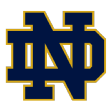 Running backs: Lance Taylor, Notre Dame
Running backs: Lance Taylor, Notre Dame
Previous job: Wide receivers coach, Carolina Panthers
The Irish are coming off of a playoff appearance, but they're looking for a lift in the run game. Last fall, Notre Dame finished 76th nationally in percentage of rushes for five yards or more (37.8%) and 62nd in average rush yards per attempt (4.42). For an offense built around line play and toughness, the rushing production must improve. Taylor spent the past two seasons coaching receivers in the NFL, but his more significant work came as Stanford's running backs coach from 2014 to 2016. He helped Christian McCaffrey earn AP Player of the Year honors in 2015, and also coached a young Bryce Love. Taylor, who started his coaching career as a graduate assistant for Nick Saban in 2007, boasts a good mix of NFL and college experience. Notre Dame lacks a superstar back right now, but Jafar Armstrong and Tony Jones Jr. both have shown bursts.
 Wide receivers: Jovon Bouknight, Oregon
Wide receivers: Jovon Bouknight, Oregon
Previous job: Outside receivers coach, Utah State
Bouknight joins an Oregon program poised to break through in the Pac-12 -- and possibly the playoff race -- but needs cleaner play from a wide receiver group that loses its most reliable option in Dillon Mitchell. Oregon had 52 dropped passes in 2018, the most in the FBS, which contributed to quarterback Justin Herbert's 59.4% completion rate. The Ducks will be relying on decorated incoming recruits such as Mycah Pittman and Josh Delgado, as well as Penn State graduate transfer Juwan Johnson, who made several notable catches but saw his receptions total drop from 54 in 2017 to only 25 last year. Bouknight, a Biletnikoff Award finalist as a player at Wyoming, had a successful decade on Utah State's coaching staff. This is a big step up to a win-now program, but he's regarded as a promising young offensive assistant.
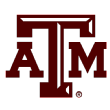 Tight ends: Joe Jon Finley, Texas A&M
Tight ends: Joe Jon Finley, Texas A&M
Previous job: Tight ends coach, Missouri
The Aggies offense took a significant step in Jimbo Fisher's first season as coach. To keep the same trajectory, Texas A&M must shore up several positions, including a tight end group that loses All-American Jace Sternberger. Finley's job became even more important this month following a serious ankle injury to freshman Baylor Cupp, ESPN's No. 65 overall recruit in the 2019, during preseason practice. Sophomore Glenn Beal, who appeared in eight games without a catch last season, probably steps into a featured role. Finley, who spent five seasons as a tight end in the NFL, had a very successful run at Missouri, helping Albert Okwuegbunam become a Mackey Award finalist in 2018. He got his college coaching start in the Baylor offense before joining the Missouri staff. Finley and new line coach Josh Henson are both significant additions to Fisher's offensive staff.
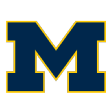 Defensive line: Shaun Nua, Michigan
Defensive line: Shaun Nua, Michigan
Previous job: Defensive line coach, Arizona State
Nua's challenge is to keep Michigan's line playing at an elite level despite losing valuable players like Chase Winovich and Rashan Gary to the NFL. The defensive line has been one of the more consistent position groups in coach Jim Harbaugh's Wolverines tenure. The key is to reload with players like Kwity Paye, Michael Dwumfour and Carlo Kemp, who started 12 games last season. Nua has quickly risen up the ranks, coaching Navy's defensive line under Ken Niumatalolo from 2012 to 2017, before spending last season at Arizona State. He's a former all-conference defensive end at BYU who played parts of four seasons in the NFL. Nua is much younger and less experienced than predecessor Greg Mattison but brings a new energy to a group where Michigan always expects big things.
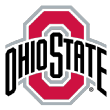 Linebackers: Al Washington, Ohio State
Linebackers: Al Washington, Ohio State
Previous job: Linebackers coach, Michigan
Much like with Briles and Clements, Mattison's move is getting attention, but the man joining him at Ohio State could be a more significant Year 1 addition. Washington also moves across the sport's most famous rivalry, and will oversee a linebacker group that needs a major jolt. Given the history, Ohio State's linebackers should never look as ordinary as they did in 2018, when the defense routinely busted for big plays (21.8% of plays went 10 yards or longer, 104th nationally). Washington coached first-round draft pick Devin Bush, All-Big Ten standout Khaleke Hudson and others at Michigan last season, after working with defensive lines at Cincinnati and Boston College the previous two years. The Columbus native is charged with getting more out of returnees like Malik Harrison, Tuf Borland and Pete Werner, and younger players like Cade Stover.
 Cornerbacks: Roy Manning, Oklahoma
Cornerbacks: Roy Manning, Oklahoma
Previous job: Outside linebackers and special teams coach, UCLA
You probably know Manning from the exuberant and entertaining selfie videos he tweets after victories. But he's also a talented young defensive assistant who joins his fourth Power 5 program since 2014 (Michigan, Washington State and UCLA). The former Michigan linebacker is one of two new Sooners defensive assistants (with inside linebackers coach Brian Odom) who worked alongside new coordinator Alex Grinch at Washington State. He understands what goes into Grinch's scheme and approach, and how to play solid defense as a complement to an Air Raid-style offense like Oklahoma's. The Sooners' defense needs help everywhere, including the secondary, after giving up an FBS-worst 294 pass yards per game in 2018. Manning's challenge became tougher after nickelback Tre Norwood sustained a season-ending knee injury in camp. His work with returning starters Tre Brown and Parnell Motley, and others behind them, will be vital as OU tries to take the next step.
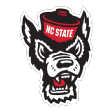 Safeties: Tony Gibson, NC State
Safeties: Tony Gibson, NC State
Previous job: Defensive coordinator, West Virginia
After a solid run at West Virginia, Gibson adds to an NC State staff packed with coordinator experience. His Mountaineers defenses shined in 2015 and 2016, and usually kept WVU in games despite the challenges of the Big 12. Safety Kenny Robinson was among Gibson's recent standouts at WVU. Gibson, who maintains a co-coordinator title at NC State, understands the details of secondary play after previous stops at Arizona, Pitt and Michigan. He inherits a standout in senior Jarius Morehead, and if senior Stephen Griffin stays healthy, NC State could have one of the ACC's top safety tandems. NC State probably will have to lean on its defense more after key personnel losses at quarterback, running back and wide receiver. Gibson should have big role in both individual player development but also the scheme NC State employs.
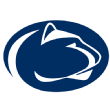 Special teams: Joe Lorig, Penn State
Special teams: Joe Lorig, Penn State
Previous job: Special teams coordinator and outside linebackers coach, Memphis
Penn State wants to make pinpointed upgrades in its program to compete for Big Ten titles and the CFP. Lorig could provide one. He's a veteran assistant who elevated the special-teams play at Memphis, which shined on kickoff returns, field goals attempts and especially coverage, not giving up a kick or punt return touchdown in the past three seasons. Penn State's special teams struggled in most areas last season, as the Nittany Lions allowed five blocked kicks, converted only 16 of 24 field-goal attempts, had untimely gaffes and finished in the middle of the FBS in far too many categories. Lorig inherits some good pieces such as returner KJ Hamler and punter Blake Gillikin. Although he primarily has coached defense, he enters his fourth FBS special teams coordinator stop after UTEP, Arizona State and Memphis.
Other first-year position coaches to watch: Alabama running backs coach Charles Huff; LSU wide receivers coach/passing game coordinator Joe Brady; Louisville outside linebackers coach/co-defensive coordinator Cort Dennison; USC defensive line coach Chad Kauha'aha'a; Ohio State secondary coach/co-defensive coordinator Jeff Hafley; Texas A&M offensive line coach Josh Henson; Oklahoma State quarterbacks coach/offensive coordinator Sean Gleeson; Penn State wide receivers coach Gerad Parker, Washington State linebackers coach Roc Bellantoni; Houston nickels/special teams coordinator Blake Gideon; Minnesota safeties coach Joe Harasymiak; Ohio State quarterbacks coach/passing game coordinator Mike Yurcich.
